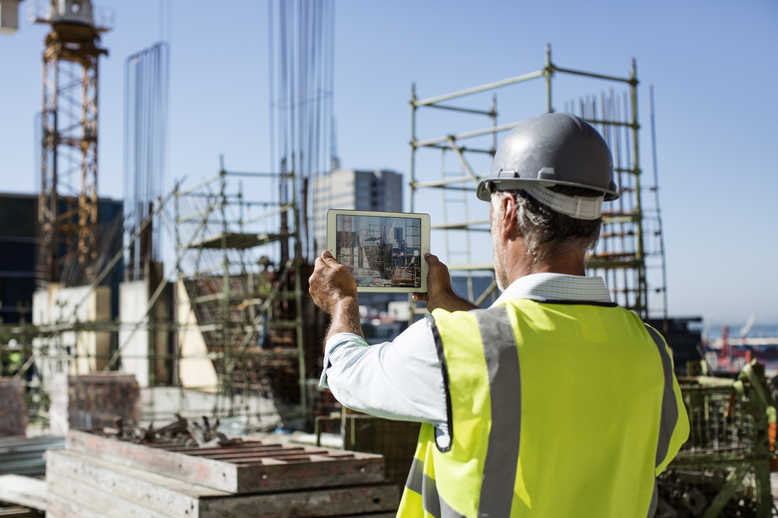
The era of digital technology has been witnessed in many sectors and various industries in the world have to adapt to those new trends.The change is inevitable whether we want it or not. Embracing it now can make a huge difference in both efficiency and cost reduction.
Today contractors need to review their long standing methods and recognize that the development of such old measures will soon be replaced by more digitized solutions. It’s not a now-or-never situation, rather the-sooner-the-better one.
There are various other reasons why construction companies have to become more digitized. Safety in the work space is actually a priority to minimize the number of accidents on the site. Cost reduction is another factor for the change, not to mention efficiency. The shift from physical to digital is already taking place and here’s how
Mobile technology and software
Today, it’s possible for contractors and project managers to monitor the work progress from their office without having to travel to remote construction sites. This solution is extremely time-efficient. Employees can use their smartphones to contact each other and update on the progress, as well as send digital pictures for verification and inspection.
Special apps can also help schedule work, manage and report it back to the main office. It improves productivity significantly. Most of this software is cloud-based enabling everyone to access real-time data. It is estimated that this solution can save hundreds of hours every year.
IT companies create other various software such as clash detection software which helps prevent accidents ensuring work safety. Moreover, ordinary people also experience technological advancement in modern houses. Smart buildings are becoming more and more popular, and everything starts with a construction company.
Building information modeling
Since its inception Building Information Modeling (BIM) is an intelligent 3D model based process that gives architecture, engineering, and construction professionals the insight and tools to more efficiently plan, design, construct, and manage buildings and infrastructure.This solution is actually shaping the future of the construction industry. It uses historical data and predictions in order to improve projects and plan the entire process in the most efficient way.
Personal management
Digital technology can support personnel management and all areas of operation. We have a very common GPS tracking that helps contractors monitor delivery times, tool-tracking software that prevents companies from big losses as the equipment is usually worth thousands of dollars if not more, or digital access software that tells managers who entered the construction site, when and for how long.
Construction management software also ensures transparency as all the stages of a project are recorded and streamed across various sectors. Digital collaboration platforms help contractors to track the progress and control its performance.
Drones and automation
The growing use of drones and autonomous construction equipment also contributes to the amount of data being generated on-site and improves overall productivity. Wireless carriers will start deploying early stage 5G in 2019, which is supposed to bring high bandwidth connectivity to greatly speed data transfer. Taken together, these new technologies and applications provide new levels of intelligence that will significantly transform project delivery, improving data management as well as productivity and safety on-site
Artificial intelligence and machine learnings
AI and machine learning proved their usefulness in the construction industry. It turns years of collected data into predictions and allows contractors to stand out and be more competitive. Intelligent mobile apps, sensors on the site as well as robots help to increase productivity and safety. They are able to create reports that tell you how much work has been done and predict the estimated time of completion.
Algorithms used by AI reports all errors occurring on the construction site as it is able to recognize different building by their shape, size, and location. Most technologies are integrated with each other to allow a better understanding of the process. Smart equipment such as drones and vehicles send digital pictures to your AI, which are then compared with BIM, 3D models, etc. It helps avoid any shortcomings in your project.
Least but not last
The digital technology does influence the construction industry in a way it never did before. Implementing it is not a choice it’s slowly becoming a necessity.















